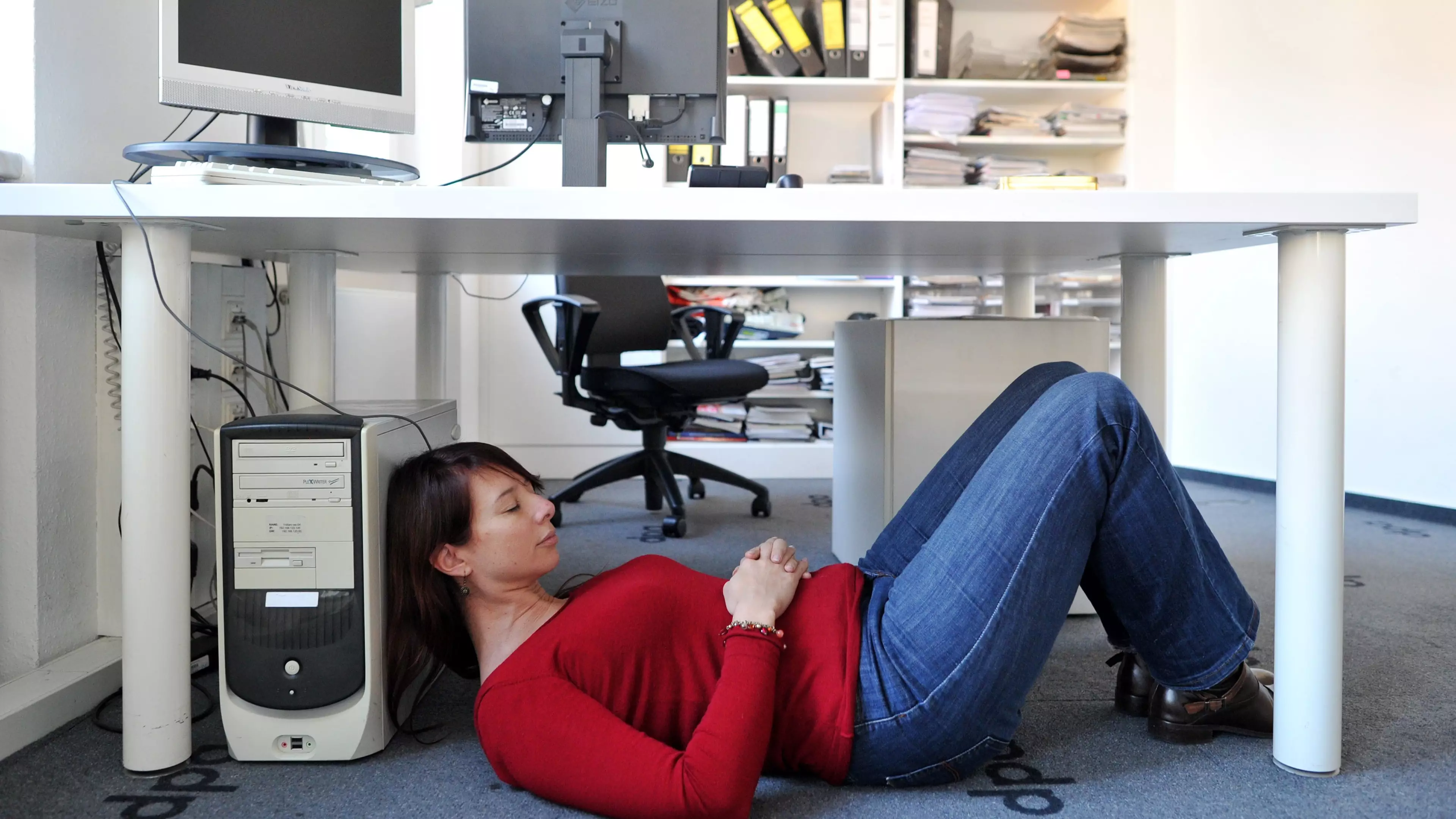
A company in New Zealand that introduced a four-day working week for their employees has declared the trial a complete success, after the workers reported back that 78 percent of them felt they could now manage their work/life balance better.
The idea of working less no doubt appeals to a lot of people, but would it actually make your life better? Would you be able to do the same amount of work if you knew you were getting more time off to do what you like? Well, finally, somebody has tried to find out.
Specifically, Perpetual Guardian - a will, estate planning and trusts management company - who trialled the intriguing new scheme across the months of March and April.
Employees worked only four eight-hour days each week, but received the same pay as if they had worked for five days.
The process was analysed (before, during, and after) by a team of academics who collated a whole load of data to see if the trial was successful.
It turns out that the majority of the people in the study reported higher levels of satisfaction, not only in their working lives, but also in their home lives. They also enjoyed their time at work more, and were more productive.

Back in November, before the study began, they found that just under half of the staff were struggling to juggle their work life and their responsibilities at home. This has now been reversed - following the study 78 percent of staff said that they had been able to manage both aspects of their lives better.
Stress levels went down, while levels of commitment, motivation and empowerment in the work place rose.
Overall, workers reported a five percent increase in their overall life satisfaction.
The workers themselves were involved in the development of the experiment. This, according to those conducting the study, increased their commitment and motivation to work.
Obviously, if you've got everyone working less hours, you've got to try to not lose as much productivity as possible.
Helen Delaney, a lecturer at the University of Auckland, explained to the Guardian how they planned to do this. She said: "Employees designed a number of innovations and initiatives to work in a more productive and efficient manner, from automating manual processes to reducing or eliminating non-work-related internet usage."
That means no scrolling through Twitter when you're supposed to be working. You'll have time to do that on your extra day off.
The company's founder was certainly impressed with the results. He intends to try to bring the results of this experiment to a wider discussion on how a four-day working week would work full-time.
He said: "If you can have parents spending more time with their children, how is that a bad thing?
"Are you likely to get fewer mental health issues when you have more time to take care of yourself and your personal interests? Probably ... if you have fewer people in the office at any one time, can we make smaller offices?"

New Zealand's government are interested too. The workplace relations minister, Iain Lees-Galloway, said that the study was 'very interesting' and added: "I'm really keen to work with any businesses that are looking at how they can be more flexible for their staff and how they can look to improve productivity whilst working alongside their staff and protecting terms and conditions."
Let's hope that more businesses have ideas like that. We could all use an extra day of rest sometimes.
Featured Image Credit: PATopics: New Zealand, Work, World News